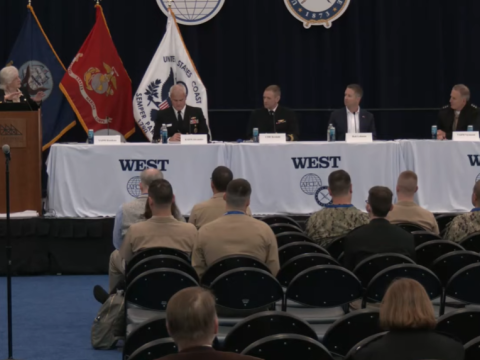Specialized Training Crucial for Skilled Cyberwarriors
The U.S. Air Force has expanded its area of responsibility to include the cyberspace domain, but the realm may need additional personnel with specialized training before it can become fully operational. Before the Air Force is ready to operate in a contested cyberspace environment, the service branch needs to regulate the development of its cyberwarriors in order to defeat cyberterrorists.
According to a 2008 report compiled by the U.S. Air Force Scientific Advisory Board, the service branch is considering developing a specific career field devoted to cyberspace, including a new kind of officer—a cyberspace warfare officer. Current career fields, including combat systems and communication and information, would be restructured to fulfill the needs within the new concentration.
Many combat systems and communication and information officers lack the specialized training needed to perform cyber tasks because these officers are not required to have computer-related degrees. To ensure that the cyberspace warfare officers have the necessary training, the field should offer at least two specialties: a cyberspace warfare operator and an electronic warfare officer.
The specialties may require substantial investments to develop, but they would allow the Air Force to mandate education and training requirements to ensure that fully qualified cyberofficers are produced. For example, electronic warfare officers should have a computer/electrical engineering or computer programming degree, and they must receive specialized training to develop the necessary skills to establish and control the cyber domain. Cyberspace warfare operators should have a computer engineering or computer science degree, and they should be trained to conduct successful offensive and defensive military cyberoperations.
Establishing a new career field and its ensuing education and training requirements could take years to accomplish. Potential candidates may be hard to recruit as well, as the number of computer science majors continues to decline. The Air Force should expand the undergraduate programs offered at the Air Force Institute of Technology to include courses similar to the advanced engineering course (ACE) cyber security boot camp, available at Rome Air Force Research Laboratory. This also may help increase the number of potential candidates.
The ACE program provides training in technology-driven tactical cyberoffense, threat-driven operational cyberdefense and policy-driven strategic effects based on a commander’s intent. Programs such as this could serve as models to help develop and define the requirements and core courses needed to create an undergraduate cybercurriculum. To provide realistic cyberspace training, including current military objectives and rules of engagement, simulators such as the BLACK DEMON and Bulwark Defender could be introduced as well.
The Air Force needs to develop a realistic career path that can and will attract and retain qualified cyberwarriors. Advancement opportunities within the cyberspace warfare career track should be available at all chain-of-command levels, and active-duty service commitments should be offered at each career progression. During active-duty officers’ deployment periods, workers from the U.S. Defense Department should be available to provide assistance. The service branch also should offer incentives and competitive compensation to retain its personnel.
The Air Force must better prepare its future officers to ensure the
John C. Rogers is a certified information systems security professional at the Department of the Air Force. He currently is enrolled at the
Does John Rogers have it right about


Comments